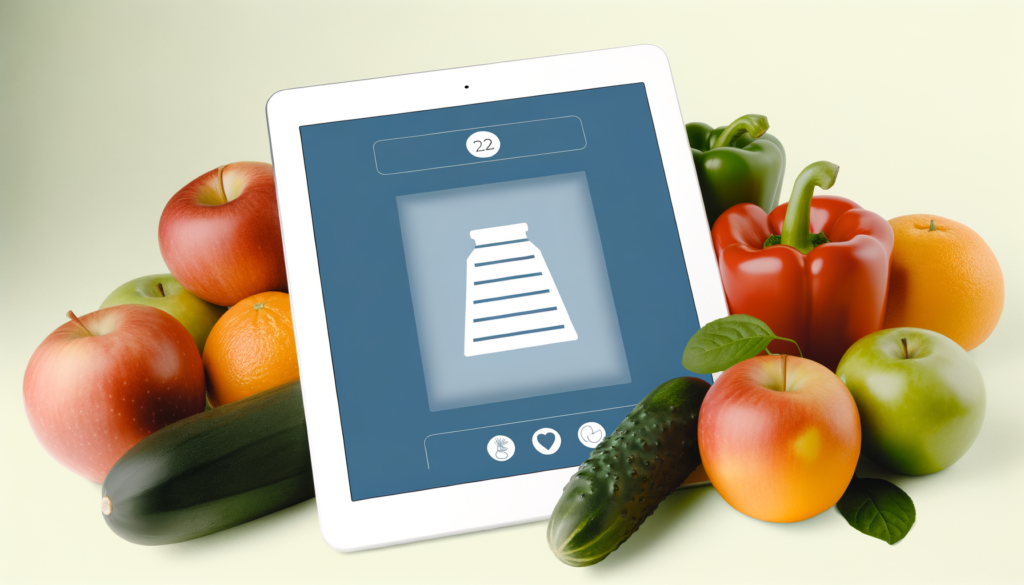The Intersection of Nutrition and Eye Health: A Comprehensive Guide
When it comes to maintaining overall health, many of us focus on the obvious aspects such as cardiovascular health, weight management, and mental well-being. However, one often overlooked but crucial area is eye health. The food we eat plays a significant role in supporting our vision and preventing eye-related diseases. In this article, we will explore how using the Calorie Calculator Cloud can help you optimize your nutrition for better eye health and vision.
Understanding the Importance of Eye Health Nutrition
Eyecare is not just about regular check-ups and corrective lenses; it also involves a balanced diet rich in nutrients that support macular health and overall vision. Key nutrients such as omega-3 fatty acids, zinc, lutein, and zeaxanthin are essential for maintaining healthy eyes.
For instance, lutein and zeaxanthin are carotenoids found in leafy green vegetables like spinach and kale. These antioxidants help protect the macula from damage caused by blue light and reduce the risk of age-related macular degeneration (AMD) and cataracts. You can find detailed nutritional information and meal plans tailored to your needs on the Calorie Calculator Cloud.
Nutrients for Vision Support
To ensure optimal eye health, it’s important to include a variety of nutrient-rich foods in your diet. Here are some key nutrients and their sources:
- Omega-3 Fatty Acids: Found in fatty fish like salmon and sardines, these fatty acids support the health of the retina.
- Zinc: Abundant in oysters, beef, and chicken, zinc is crucial for the health of the retina and the optic nerve.
- Lutein and Zeaxanthin: As mentioned earlier, these carotenoids are found in leafy greens like spinach and kale.
- Vitamin A: Important for the health of the cornea, vitamin A is found in sweet potatoes, carrots, and dark leafy greens.
- Vitamin C: Found in citrus fruits, berries, and bell peppers, vitamin C helps protect against oxidative stress that can damage eye tissues.
- Vitamin E: This antioxidant is found in nuts and seeds like almonds and sunflower seeds and helps protect cells from damage.
Using Calorie Calculator Cloud for Personalized Nutrition Plans
The Calorie Calculator Cloud is an invaluable tool for anyone looking to optimize their diet for specific health goals, including eye health. Here’s how you can use it:
- Input Your Details: Start by entering your age, weight, height, and activity level to get a personalized calorie intake recommendation.
- Set Your Goals: Choose your health goals, such as improving eye health or supporting vision.
- Generate Meal Plans: The calculator will provide you with tailored meal plans that include foods rich in the necessary nutrients for eye health.
- Track Your Progress: Use the platform to track your daily intake and ensure you are meeting your nutritional needs.
For example, if you are looking to increase your intake of lutein and zeaxanthin, the Calorie Calculator Cloud can suggest meals that include spinach, kale, and other leafy greens. You can also explore different Calorie Calculator Plans to find one that best fits your lifestyle and budget.
Real-World Examples and Case Studies
Several studies have highlighted the importance of nutrition in maintaining eye health. For instance, the Age-Related Eye Disease Study (AREDS) by the National Eye Institute found that a diet rich in antioxidants such as vitamins C and E, beta-carotene, zinc, and copper significantly reduced the risk of AMD progression.
In another study published in the Journal of Nutrition, it was found that individuals who consumed higher amounts of lutein and zeaxanthin had lower risks of developing AMD.
Incorporating Eye Health-Friendly Foods into Your Diet
Here are some practical tips to incorporate eye health-friendly foods into your daily diet:
- Start Your Day Right: Begin your day with a spinach omelet or a smoothie made with kale and berries.
- Snack Smartly: Choose snacks like almonds and sunflower seeds which are rich in vitamin E.
- Include Omega-3 Rich Foods: Add fatty fish like salmon to your weekly meal plan.
- Use Herbs and Spices: Turmeric contains curcumin which has anti-inflammatory properties beneficial for eye health.
Brands like Garden of Life offer supplements that can help fill any nutritional gaps in your diet. However, always consult with a healthcare professional before adding any supplements to your regimen.
Lifestyle Changes to Support Eye Health
Beyond diet, there are several lifestyle changes you can make to support your eye health:
- Regular Eye Exams: Schedule regular eye exams to catch any issues early.
- Protect Your Eyes from Blue Light: Use blue light filtering glasses or apps when using digital devices for extended periods.
- Quit Smoking: Smoking is linked to an increased risk of AMD and cataracts.
- Maintain a Healthy Weight: Being overweight or obese can increase the risk of developing diabetes, which in turn can affect eye health.
Conclusion and Next Steps
In conclusion, optimizing your nutrition for eye health is a multifaceted approach that involves a balanced diet rich in specific nutrients, lifestyle changes, and regular health check-ups. The Calorie Calculator Cloud is a powerful tool that can help you achieve this by providing personalized meal plans and tracking your progress.
If you are serious about supporting your vision and macular health, consider exploring the various Calorie Calculator Plans available. With the right nutrition and lifestyle choices, you can significantly reduce the risk of eye-related diseases and maintain clear, healthy vision for years to come.
Start your journey towards better eye health today by visiting the Calorie Calculator Cloud and taking the first step towards a healthier, clearer future.








